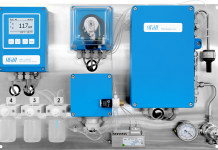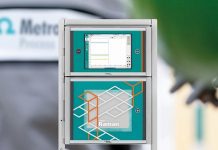The Centre for Process Innovation (CPI) is leading a new collaboration with thirteen partner organisations designed to take advantage of the opportunites presented by the the Internet of Things (IoT).
IoT involve the integration of electronics into a wide range of everyday items and the Necomada (Nano-Enabled Conducting Materials Accelerating Device Applicability project will develop technologies in clothing, healthcare, printing, domestic appliances, smart packaging, and consumer goods.
The Necomada project involves the Centre for Process Innovation Ltd, Henkel Electronic Materials, PragmatIC Printing Ltd, Teknologisk Institut), Contitech Elastomer-Beschichtungen, Nanogap Sub-NM-Powder SA, Thomas Swan & Co Ltd, BSH Electrodomesticos Espana SA, Henkel KGaA, Crown Packaging Manufacturing UK Ltd, Fraunhofer FhG, Tyoeterveyslaitos and NXP Semiconductors.
The project will use CPI’s open access pilot facilities at the UK’s National Centre for Printable Electronics in the North East to develop integration systems for printed electronics as well as new materials development.
Jorge Alamán, of BSH Electrodomésticos España, said: “The Necomada project allows us to participate in and be at the forefront of these new technology developments, as well as make use of the end products.
“Not only will the final user benefit from this technology, but all other users that are in contact with the product during its life cycle will benefit from enhanced technical assistance, product production and recycling.”
Olaf Lammerschop, Innovation Manager, Henkel KgaA, said: “Being involved from the start of the project will enable us to better serve the needs of our customers. To address the IoT, Necomada will bring innovative electronics into our everyday products.”
Jon Helliwell, Business Development Director, Centre for Process Innovation, said: “We believe that the unique blend of skills and capabilities within our consortium will enable us to develop materials that will support high-speed, roll-to-roll integration of hybrid and large area electronics. This will unlock many of the opportunities that the Internet of Things presents to a wide range of stakeholders.”
The project has received funding from the European Union’s Horizon 2020 research and innovation programme.











